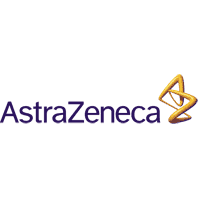Biodel Submits VIAject® for Treatment of Diabetes
 Biodel, Inc. announced today that it has submitted a new drug application (NDA) to the U.S. Food and Drug Administration for clearance to market VIAject® as a treatment for diabetes.
Biodel, Inc. announced today that it has submitted a new drug application (NDA) to the U.S. Food and Drug Administration for clearance to market VIAject® as a treatment for diabetes.
VIAject® is Biodel’s proprietary formulation of recombinant human insulin that is designed to be absorbed into the blood faster than currently marketed rapid-acting insulin analogs. It is Biodel’s most advanced product candidate and has been tested in more than 884 patients who participated in Phase 1, 2 and 3 clinical trials of the drug in the United States, Germany and India. Biodel is seeking approval to market VIAject® in the United States as a 100 IU/cc, pH7 (neutral) injectable liquid, in 10 ml vials and 3 ml pen cartridges.
The NDA includes results from pharmacokinetic, pharmacodynamic and standardized meal studies, two pivotal 6-month Phase 3 clinical trials of VIAject® in patients with Type 1 and Type 2 diabetes, as well as interim results from the long-term, 18-month safety extension trials for patients who completed the pivotal Phase 3 clinical trials. The data from these studies consistently document the safety and efficacy of VIAject®.
Biodel’s chairman and chief executive officer, Dr. Sol Steiner, stated: “We believe our studies demonstrate that patients receiving VIAject® had faster reductions in blood glucose activity, reduced risks of hyperglycemia and hypoglycemia and less weight gain than patients who received recombinant human insulin, and that VIAject® may offer important clinical benefits to people with diabetes. I congratulate our team on submitting the NDA and reaching this important milestone in the development of our lead product candidate.”
About VIAject®
VIAject® is Biodel’s proprietary formulation of injectable human insulin for use at mealtime and in insulin pumps. It has been shown to be absorbed into the blood faster than currently marketed rapid-acting insulin analogs. VIAject®’s formulation allows insulin to disassociate, or separate, from the six molecule (hexameric) form to the single molecule (monomeric) form and inhibit re-association to the hexameric form, promoting more rapid delivery of insulin into the blood to produce its desired biological effects.
About the NDA
Since VIAject® is a modified form of recombinant human insulin, Biodel is submitting its new drug application for VIAject® under section 505(b)(2) of the Federal Food, Drug and Cosmetic Act which governs the review of an NDA for a modified form of a previously approved product. This section of the act allows a pharmaceutical company to submit an NDA based in whole or in part on published literature or on the FDA’s finding of safety and efficacy of one or more previously approved drugs and may result in approval of a drug based on fewer clinical or nonclinical studies than would be required under a full NDA. Although no insulin product has been approved under this section of the act, Biodel believes its NDA for VIAject® qualifies for review under section 505(b)(2).
About Diabetes
Diabetes is a disease characterized by abnormally high levels of blood glucose and inadequate levels of insulin. Glucose is a simple sugar used by all the cells of the body to produce energy and support life. Humans need a minimum level of glucose in their blood at all times to stay alive. Insulin is a peptide hormone naturally secreted by the pancreas to regulate the body’s management of glucose. When a healthy individual begins a meal, the pancreas releases a natural spike of insulin called the first-phase insulin release, which is critical to the body’s overall control of glucose. All patients with Type 1 diabetes must treat themselves with mealtime insulin injections to compensate for the lack of natural pancreatic first-phase insulin release. As the disease progresses, patients with Type 2 diabetes also require mealtime insulin. However, none of the currently marketed mealtime insulin products adequately mimics the first-phase insulin release. As a result, patients using insulin typically have inadequate levels of insulin in their systems at the start of a meal and too much insulin in their systems between meals. This, in turn, results in the lack of adequate glucose control associated with diabetes. The long-term adverse effects of elevated glucose levels include blindness, loss of kidney function, nerve damage and loss of sensation and poor circulation in the periphery, which in some severe cases, may lead to amputations.
About Biodel Inc.
Biodel is a specialty biopharmaceutical company focused on the development and commercialization of innovative treatments for endocrine disorders such as diabetes. Biodel's product candidates are developed using technology which reformulates existing FDA-approved peptide drugs. For further information regarding Biodel, please visit the company's website at www.biodel.com.
read more» Read more...















